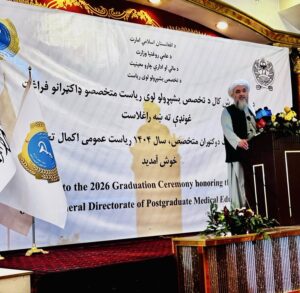KABUL (SW) – In a recent Salam Watandar interview with 30 women capable of financially affording animals’ sacrificial offerings, 28 expressed their reluctance to sacrifice animals this coming Eid.
Despite their financial capacity, many prioritize personal expenditures such as jewelry purchases and personal savings, as well as charity efforts over traditional sacrifices.
Aniya Ghafoori stated, “In our home, my father and now my brother perform sacrifices; that’s enough for me. I can’t remember a woman in our household ever performing a sacrifice. I buy gold every month with my salary. My mother believes it’s good for her daughter to have money, so I choose not to sacrifice.”
Similarly, Maryam Rahmani explained, “I enjoy having more jewelry, so every month I exchange some money into gold. My husband performs the sacrifice; our family is small, so his effort suffices.”
In Afghan society, men traditionally take on the leadership role in performing sacrificial acts during occasions like Eid. This cultural practice may contribute to women’s hesitation or reluctance to participate. Parwana, 35, from Kunduz, and Rabia from Sar-e Pol expressed their contentment with the men in their families assuming this responsibility.
Parwana added, “I’m a school principal and earn my income. I haven’t considered performing a sacrifice. It’s proper that the man of the house does it. I spend my income on myself, my family, buying gold, outings with friends, and on Eid clothes.”
Rabia further said, “Being unmarried and under my father’s care, they perform the sacrifice every year. There’s no need for me to do it. I save some money because I have plans for the future, like buying land or starting a business.”
Lema, a 25-year-old from Nangarhar, indicates that she has responsibilities and capabilities, however, personally does not perform sacrifices on Eid occasion. Lema mentions that in her family, the duty is handled by her father and grandfather, while her mother and sisters do not participate. “I save money for my brother’s wedding.”
Sahar Talash, residing in Kapisa, adds, “Due to debts, no one in our family has decided to perform a sacrifice. My mother is a teacher and hasn’t received her salary yet, and my sisters are still too young. I’m the breadwinner; I spend my money on our home and family.”
In Islam, sacrificing animals during Eid al-Adha is considered a “highly recommended” act rather than obligatory, especially for those financially capable. Consequently, some of the women interviewed in this report express their intention to allocate their sacrificial funds towards charitable endeavors.
Nazema, 28, from Kunduz, and Aziza, from Sar-e Pol, state that they will use their sacrificial funds for charitable organizations and girls’ educational centers.
Nazema explains, “Since we’re not sacrificing, we’re directing our funds towards several charitable activities. We contribute part to local charities engaged in various sectors like food and medicine, and also assist several needy individuals facing difficulties. Additionally, we participate in projects such as building schools or providing school supplies to underprivileged children. These efforts give us a sense of contributing to the improvement of the lives of those in need.”
Aziza adds, “In the future, I plan to establish a low-cost school for adolescent girls and encourage illiterate women to join. I’ve always wanted to help my community, especially young people. Furthermore, I intend to assist a couple who have been engaged for several years but lack financial means to marry. Their union is a small gathering, and I aim to provide at least a basic amount of groceries equivalent to the cost of a sacrificial animal.”
Mahjuba Habibi, a women’s rights activist, points out that despite women’s financial capability and willingness, they are often discouraged from performing animal sacrifices themselves. Instead, male members of their families typically take on this ritualistic responsibility.
Nevertheless, religious scholars affirm that according to Islamic Sharia, it is highly recommended for financially capable Muslims, including women, to perform Eid sacrifices.
Qotbuddin Mujtahid, a religious scholar, explains that in addition to drawing closer to God and earning rewards, Eid sacrifices foster solidarity, strengthen community bonds, and provide essential aid to the needy.
“Eid sacrifices not only serve to bring us closer to God and earn rewards but also enable us to assist our fellow citizens. One of Islam’s core principles is to support the needy, fostering greater solidarity and brotherhood among us,” Mujtahid stated.






